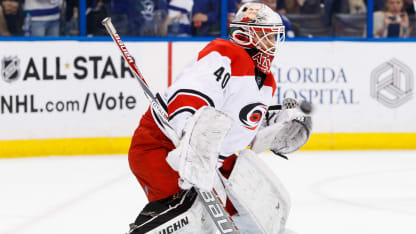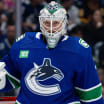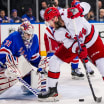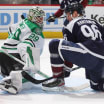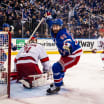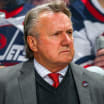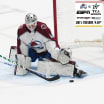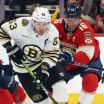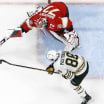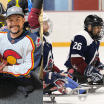"It's great because now your guys get to shoot on a goalie, you get to work on stuff," Peters said earlier this season. "We love Little Wardo, but you're not afraid to one-time one off his noggin, whereas the other guys, they need a break. You get to the halfway point or the dog days of the season and goaltenders want to get their work in and get off and guys don't want to shoot at an empty net, so it's huge to have somebody that can go out and take some shots. And we want to work on net-front presence and deflecting pucks so we can do that with Little Wardo in net and get our guys bombing away there, and it doesn't wear out your two primary goaltenders."
Ward recognizes the value Alves provides.
"It certainly helps," Ward said after retreating to the locker room with Alves finishing a practice earlier this season. "He is like the Rudy for me, a guy that just loves the position, loves to play and to give guys a bit of a breather towards the end of practice or a pre-game skate to save a little energy is beneficial in the long haul, because of how much of a grind the season is."
The reality is a lot of team practice time isn't necessarily good for goaltenders.
A large portion of practice is spent on line rushes that are only loosely defended, leaving wave after wave of shooters with more time and space to shoot from spots and in situations they might be lucky to get once or twice a season.
Too much can actually become a bad thing for goalies, who can be tempted to cheat. In many ways, practice resembles summer shinny, which many NHL goalies avoid because the only way to consistently make saves is to play differently than they would during the season. By the end of many practices, the goaltender is effectively serving as a target.
"I'd rather do quality than quantity," Ward said. "It's not about going out and bagging yourself. You want to put in the work, but you want to do it right to create the good habits."
Minnesota Wild No. 1 goalie Devan Dubnyk credited a three-goalie rotation for being able to start a franchise-record 38 straight games late in the 2014-15 season.
